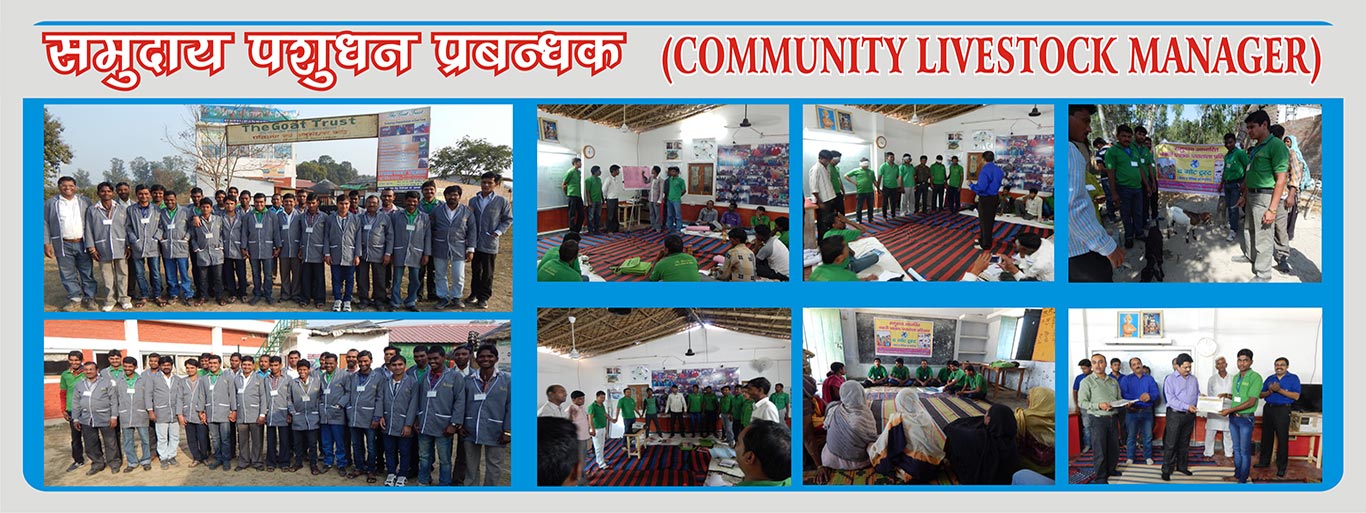The Breeding Buck Entrepreneur Concept
What Is the Breeding Buck Entrepreneur Concept?
A Buck Entrepreneur is a service provider who manages a buck breeding facility. They purchase high-quality bucks with technical guidance and offer breeding services at a reasonable cost to small-scale goat farmers.
Who is the Buck Entrepreneur?
The Buck Entrepreneur can be a man or woman with a progressive mindset and a positive attitude. Their role involves:
- Providing timely mating services for goats in the village using a quality buck.
- Securing credit to purchase the buck.
- Acting as a local resource person for goat reproduction.
- Educating goat rearers about best practices in goat breeding, working alongside Pashu Sakhi (female livestock service providers) in the field.
Why is a Buck Entrepreneur Required?
Most goat rearers keep small herds (3-4 goats) as a supplementary source of income. Maintaining their own breeding bucks is neither practical nor economically feasible. This creates challenges:
- Limited access to bucks: The large number of small-scale goat farmers (60-70%) creates a demand for readily available bucks.
- Low genetic quality: Breeding with readily available, low-quality bucks leads to offspring with poor genetics. Studies have shown that up to 25% of goats miss breeding opportunities due to a lack of quality bucks available at the right time.
- Seasonal breeding: Goat breeding is seasonal due to nutritional and environmental factors. The limited availability of breeding bucks during this period hinders regular conception and kidding for small-scale farmers.
Challenges Addressed by Buck Entrepreneurs:
- Social and economic barriers: Large-scale farmers who own breeding bucks may impose social or economic barriers when allowing smaller farmers access for mating services.
- Inferior buck usage: Sometimes, young, immature bucks (6 months old) are used for breeding, leading to further complications.
Consequences of Unmanaged Breeding:
- Delayed pregnancy: Goats are unable to become pregnant due to the unavailability of breeding bucks.
- Wasted resources: Unsuccessful mating during the heat period results in wasted feed and labor invested in those goats for three weeks until the next cycle.
- Weak offspring: Poor-quality breeding bucks lead to offspring with weaker genetics.
- Inbreeding depression: Not replacing bucks regularly increases the risk of inbreeding depression, leading to weaker offspring.
- Negative impact on reproduction: Using immature bucks further hinders reproduction success.
Importance of Quality Bucks:
The genetic qualities of a single buck can be passed on to many goats, highlighting the importance of using a high-quality breeding buck for optimal herd health and productivity.
Responsibilities of a Buck Entrepreneur:
- Procure high-quality, healthy bucks using a combination of revolving funds and personal investment.
- Educate village goat rearers about improved breeding methods and offer buck breeding services.
- Provide proper care for the breeding buck, including good quality fodder and supplementary feed, and address any issues with the help of Pashu Sakhi.
- Maintain records of breeding services rendered, goat and kid information.
- Replace the breeding buck every 18-24 months.
- Manage records related to goat insurance and finances.
Functions of Community Livestock Manager
- Enhance the capacity of Pashu Sakhies to deliver efficient livestock services and provide support for input and output linkages.
- Offer guidance and advice to livestock farmers for optimizing livestock production.
Additional Functionalities (may be a separate section):
- Facilitate Shepherd Schools that teach improved management practices like balanced feeding, proper breeding techniques, cost-effective housing solutions, and sanitation.
- Guide farmers in crop and livestock selection for maximizing resource utilization and enhancing farm profitability.
- Demonstrate low-cost, pro-poor technologies in the field in collaboration with Pashu Sakhi.
- Motivate farmers to adopt preventative healthcare practices and provide affordable doorstep first-aid services.
- Initiate input and output linkages for livestock farming on a cost-recovery basis.
- Assist farmers in maintaining basic production records and performing business assessments.
- Start and manage personal livestock farms (entrepreneurial opportunity).
Potential Employers for Buck Entrepreneurs
- Micro Finance Institutions (MFIs) with significant livestock loan portfolios.
- Government-led livelihood development projects (National Rural Livelihood Mission, State Rural Livelihood Projects, Animal Husbandry Department projects).
- Non-governmental organizations working on livestock-based livelihoods.
- Commercial livestock farms.
- Village Panchayats as livestock-based livelihood support providers.
- Entrepreneurial initiatives
- Small-scale goat/sheep/backyard poultry farms.
- Livestock breed traders & suppliers.
- Freelance livestock primary health service providers.
- Freelance trainers for government and non-government livestock projects.
- Livestock input (feed/medicine/fodder seed) suppliers.


